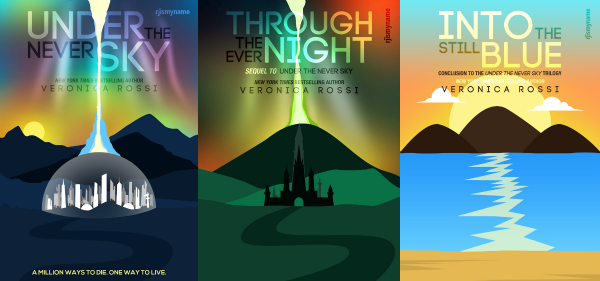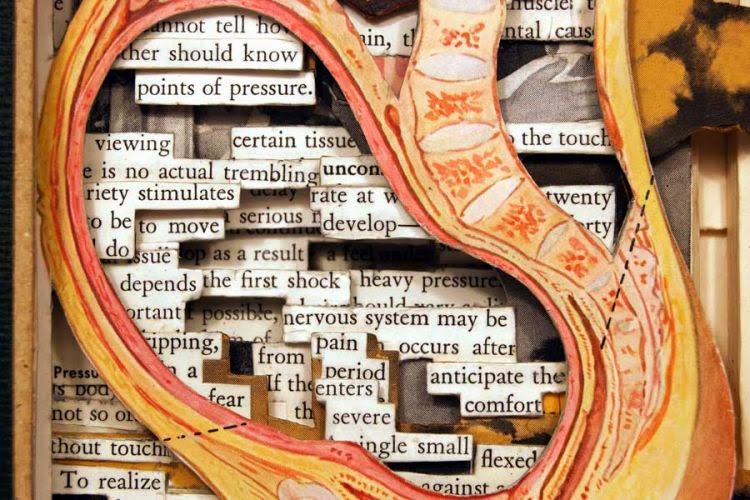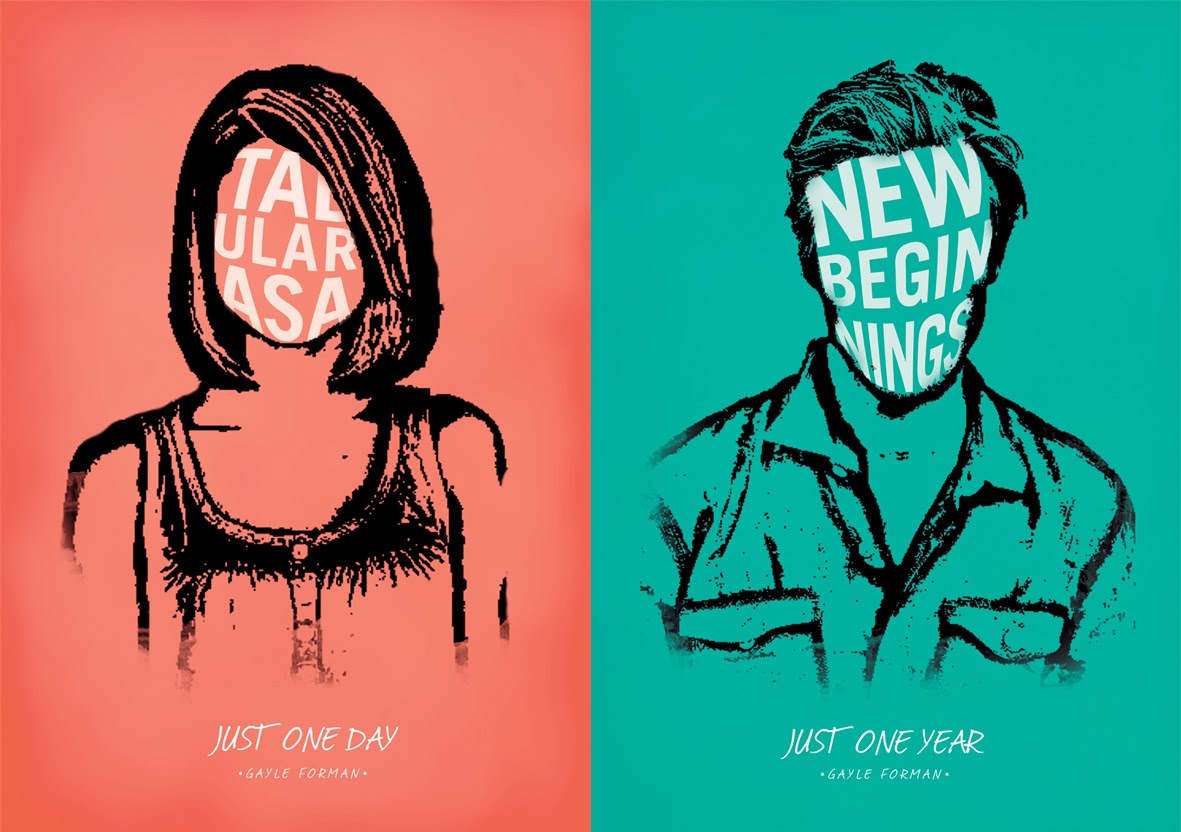
There’ve also been a rise in ‘duology and a third book’ deals. Yet these hardly seem to make a dent in an endless onslaught of YA trilogies.
ON THE COUNT OF THREE
 |
| Only way to YA. (Source) |
There’s always been talk of readers getting tired of trilogies that we now have a roadmap to guide us. Or at least, Asti does. We talked about duologies and trilogies on Twitter and I ended up asking her what first and third books in a trilogy entail as she wrote a blogpost on second book syndrome a while back. I get curious easily. Asti did an awesome job of coming up with these.
FIRST BOOK TRIAL
‘If you love it, great, continue series. If you don’t, no harm done, just move on.’
SECOND BOOK SYNDROME
‘Watch out for disappointment. Tread carefully. There’s no turning back now.’
THIRD BOOK REDEMPTION
‘Was the book worth it? Has your entire life been a waste? It’s all up to how that final book ends.’
 |
| You got trilogic feelings in your stomach? Totally legit. (Source) |
Simply put, excess of anything is exhausting and trilogies have been around a long time now. From the mere number of series I’ve finished, I might just get tired of going through the same steps over and over. Every now and then, we all need a break.
GOING ONE, GOING TWO
There are dualogies where we get to read both the main characters’ point of views in two different books instead of just one where they alternate. In such girl-and-boy-dualogies, there’s no need for the third book. Then there are books with sequels that fast-forward years later into a character’s life. There are also duologies which could have been awkward and really long standalones, instead.
 |
| Dualogies are becoming Forman’s forte. (Source) |
Despite a relatively recent surge in YA duologies, the ones that came just before 2012 were few and far between. If I Stay/Where She Went by Gayle Forman is the most popular YA duology ever.
– A Need So Beautiful and A Want So Wicked by Suzanne Young
– Clarity and Perception by Kim Harrington
– If I Stay and Where She Went by Gayle Forman
– Inside Out and Outside In by Maria V. Snyder
– Juliet Immortal and Romeo Redeemed by Stacey Jay
– Jumping Off Swings and Living with Jackie Chan by Jo Knowles
– Leaving Paradise and Return to Paradise by Simone Elkeles
– Anna Dressed in Blood and Girl of Nightmares by Kendare Blake
– Breathe and Resist by Sarah Crossan
– Dark Kiss and Wicked Kiss by Michelle Rowen
– Every Day and Rhiannon by David Levithan
– Fracture and Vengeance by Megan Miranda
– Masque of the Red Death and Dance of the Red Death by Bethany Griffin
– Pretty Crooked and Pretty Sly by Elisa Ludwig
– Seraphina and Shadow Scale by Rachel Hartman
– Silver and Gold by Talia Vance
– Slide and Imposter by Jill Hathaway
– Struck and Aftershock by Jennifer Bosworth
– The Creative Fire and The Diamond Deep by Brenda Cooper
– Arclight and Meridian by Josin L. McQuein
– All Our Yesterdays and Untitled by Cristin Terrill
– Dualed and Divided by Elsie Chapman
– Control and Catalyst by Lydia Kang
– Gated and Astray by Amy Christine Parker
– In the After and In the End by Demitria Lunetta
– Just One Day and Just One Year by Gayle Forman
– Linked and Unravel by Imogen Howson
– Mind Games and Perfect Lies by Kiersten White
– My Life Next Door and The Boy Most Likely To by Huntley Fitzpatrick
– Not a Drop to Drink and In a Handful of Dust by Mindy McGinnis
– Pivot Point and Split Second by Kasie West
– Reboot and Rebel by Amy Tintera
– Starglass and Starbreak by Phoebe North
– Starters and Enders by Lissa Price
– The Program and The Treatment by Suzanne Young
– The Rules for Disappearing and The Rules for Breaking by Ashley Elston
– The Ward and Untitled by Jordana Frankel
– Alienated and Invaded by Melissa Landers
– Avalon and Polaris by Mindee Arnett
– Blackbird and Untitled by Anna Carey
– Dark Metropolis and Untitled by Jaclyn Dolamore
– Disruption and Corruption by Jessica Shirvington
– Landry Park and Untitled by Bethany Hagen
– To All the Boys I’ve Loved Before and P.S. I Still Love You by Jenny Han
– Uninvited and Unleashed by Sophie Jordan
– White Space and The Dickens Mirror by Ilsa J. Bick
– A Darker Shade of Magic and Untitled by Victoria Schwab
– Kalahari and Untitled by Jessica Khoury
– Kissing in America and Untitled by Margo Rabb
– Passenger and Wayfarer by Alexandra Bracken
TREND AND GO.
In the end, it may seem as if duologies are pointless because why not just add a book? I’ve often wondered about this and after finishing two duologies, they didn’t seem redundant to me. However, my opinion of them is still evolving. Meanwhile, I’m ready for series that aren’t trilogies.
P.S. I’ve also made a Goodreads list for duologies and companions.
To be honest, I'm just wary of series in general. Often, the story drags on, milked until it's flopping around, helpless. I like stand-alone books because the story ends there. I'm fine with companion books though (ie Stephanie Perkins' novels) because the stories are separate for the most part.
This was a very necessary analysis. I haven't read a TON of duologies or trilogies. The one reason that I haven't been able to do so is because I am aware of the step by step mind process that you have described in the post- the high hopes, the not wanting to leave the series unfinished and so on. If you ask me, duologies sound way better than trilogies to me. Tones done the fear, the disappointment and the over-expectation factor a little, I think. However, I still find myself more comfortable with stand-alones. I do sometimes want to read more of the world and characters of an amazing stand-alone but then, I just think it's better the way it is.
I used to feel very overwhelmed by the number of trilogies and when asked, always said I was burnt out on them too. But when I started collating my reading data in spreadsheets, I realised that actually, I don't read as many series as I thought. I always bemoaned the lack of standalones in YA fiction, but of the 60 books I read in 2013, 26 were standalones; out of the 19 books I've read so far this year, 13 have been standalones.
Looking back at my own experiences, I think there are plenty of standalones out there, but the marketing for trilogies seems to be a lot louder, and I think that's what leads to the burn out. It makes sense, I guess: trilogies mean more books in a series, obviously, which means more opportunities to make money. Of course the more extensive marketing campaigns would be for series. It does have a backlash, though, and I think maybe publishers are trying to compromise with readers who are bored with trilogies but are still trying to maximise profits by focusing instead on two book deals or duologies.
I am a bit burnt out, espesh on dystopian, but then I read a trilogy like the Daughter of Smoke and Bone books and am blown away but how good all three books are.
I love the images you've used in this post, the cover designs are awesome!
I let out a groan whenever I see more trilogies but I guess when I really think about it, I'm okay with trilogies and series. It all really comes down to the execution and my overall enjoyment of the books. What really grates me at times about trilogies is how it's so clear it would have been better if they just shortened it and stuck with a standalone or a duology. But I really like duologies right now because most of the time the material seems enough to fit in two novels and the wait between each one isn't that long either so you can get closure much faster.
First, those Under the Never Sky covers? AMAZING!!
I'm apprehensive about trilogies because it's a huge commitment! Especially if the first book is mediocre. I'm usually tempted enough to read the second book, but then if the second book is awful, I have the choice of quitting when I'm 2/3 done, or powering through despite my reservations for the series.
At least with duologies, if I think the first one is ok, and the second one bombs, I don't have to agonize over whether or not to keep going; I'm already done!
I LOVE those Under The Never Sky covers. I want one!!
I'm still a big fan of trilogies, because I hate letting characters go (I'm super clingy that way haha). I do think duologies are actually even better though and I'm kin of hoping they steal the spotlight from trilogies. With trilogies the second book is never that good and always seems to be more of a filler, but with duologies, the second book is the climax and so it's every bit as awesome (if not more so) than the first book.
The Art of Wishing was originally meant to be a trilogy, but after the first book came out Lindsay Ribar decided she didn't want to drag out a story she could tell in two books for three books. I kinda think that's awesome. That way the story doesn't get old or lag in places; it's pumped full of all the good stuff for the entire thing.
Wow, those covers from Under the never sky are spectacular! The second one reminds me a bit of Shadow and Bone, with that silhouette building 🙂
Despite the most-of-the-times-horrible-second-book, I do like trilogies. I have a feeling that it's just the right amount of pages to tell a story the right way 🙂 Unless your name is J.K Rowling, then you can go ahead and write as many books as you want. Also, I've seen so many series where the second book is just as good as the others, that I haven't lost hope.
What I really like about duologies is that the last book has to be epic, but the first one is sometimes more a step-up for the real story..
I think that every story is different in how it needs to be told, sometimes it's one book, sometimes it's two, sometimes it's three, and sometimes it's ten. Yes, there might sometimes be marketing strategies and what not involved with the decision, but as someone who writes, I completely understand and have thought about the pros and cons of standalone versus duology versus trilogy versus series. I have some story ideas in my head that I was trying to connect and have spent a lot of time considering the best option for them. I do think, however, that authors should plan out their stories enough ahead of time to ensure they will have enough material for each book if they plan to do multiple books. We all love a good trilogy, but a bad ending for a trilogy can ruin the whole story experience for us.
This comment has been removed by the author.
Ooh. I've never seen those covers of Just One Day and Just One Year! They are gorgeous!
Anyway, I think stories should be told in as many books as necessary. If a standalone tells the story, then good on it. Though if a book threatens to exceed 600 pages, then maybe a duology might be a better idea. Like you said, better than awkward standalones. As for duologies vs. trilogies, if a story is done after two books, then it's better when no third one is tagged on, lest it leaves a bad taste in everyone's memories.